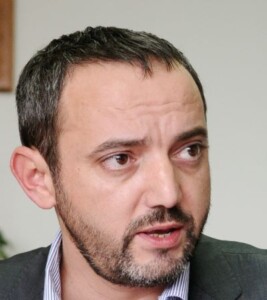Savings, as well as other deposits in banks have never been more common. At first glance this is a good indicator, but the truth is different.

Siniša Vukelic
Fear, uncertainty and mistrust of citizens finance the survival of the political climate in BiH, which is the main cause of all economic, social, health and educational problems in the country.
It sounds paradoxical, but it’s true. The greater the amount of fear produced by political elites, the more unconsciously citizens prolong their political lifespan.
Savings, as well as other deposits in banks have never been more common. At first glance this is a good indicator, but the truth is different. This means that citizens in Bosnia and Herzegovina are spending less and less. Unable to predict what will happen in the next few years, they give up large investments, they aren’t buying apartments or cars… They keep their ‘funds for a rainy day’ in banks.
Banks are facing a particular problem for the first time – excess funds. And what do they do? With this money they generously buy bonds, treasury bills of entity governments, cities, municipalities, public enterprises and funds. With cheap money from the citizens, they fund failed projects in advance through loans, support uncontrolled spending by the public administration – sending a message to the public that everything is in order and that everything is working.
For example, one of the largest buyers of government bonds on the Banja Luka Stock Exchange are funds, insurance companies and banks based in the Federation of BiH, whose citizens generally disagree with the views of the RS authorities.
Banks, investment funds and other investors, of course, should not be policy leaders, but make a profit in accordance with legal regulations.
But the question is whether they should put more pressure on the government to improve the situation in the country for the sake of their long-term survival? Unlikely! Government institutions hold billions in their accounts, which can easily go to a different bank, and regulators under political control very skilfully ‘stretch’ regulations and can make their lives miserable.
Banks find it easier to decide to lend to the state than to citizens. According to the data of the Central Bank of BiH, at the end of August 2021, out of 20.8 billion KM of loans, less than half (10.3 billion) were given out to the population. But the structure of such a small percentage loaned to the population is also worrying. As much as 7.6 billion KM are consumer, non-purpose loans, and only 860 million KM were taken by citizens for the purchase of apartments and houses, and a negligible 8.2 million KM for the purchase of cars.
Now let’s look at the other side of the coin, deposits, which include savings, salaries and all other money belonging to citizens, companies and the state that is in the accounts of banks in BiH.
They total about 27.13 billion KM. Here, the citizens are at a disadvantage once again. Citizens’ deposits are 14.4 billion KM, of which citizens have about five billion in their accounts.
People in this country are afraid, and they don’t know ‘what might happen tomorrow’, and this is demonstrated by the fact that as much as 3.8 billion KMs are held as demand deposits, even though the average interest rates on them are catastrophically low, around 0.042 percent.
They deposited only a third or only 5.1 billion KM in the form of long-term loans.
This situation is unsustainable for citizens, banks and the economy in the long run, but it is profitable for the politicians who caused it and maintain it. It is enough for them to get another term or two, enough for a lifetime.
Siniša Vukelic, owner and editor in chief of two web portals specialised in economics (capital.ba) and energy (energetikars.com)



Leave A Comment